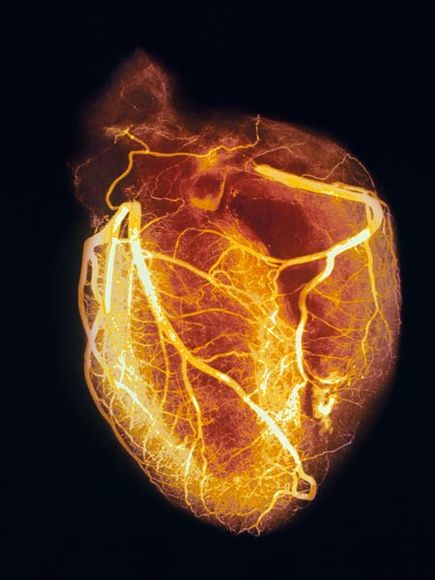
Defibrillators may not save women, study finds
Despite their widespread use, implantable defibrillators to protect against deadly heart rhythms do not prevent deaths in women with advanced heart failure, U.S. researchers said on Monday.
They said implantable defibrillators — which detect abnormal heart rhythms and offer a life-saving shock to restore a regular heartbeat — do not appear to protect men and women equally.
“There seems to be much less significant benefit” in women, said Dr. Christian Machado of Providence Hospital Heart Institute and Medical Center in Michigan, whose study appears in the Archives of Internal Medicine.
“Implantable cardioverter-defibrillators are being implanted in hundreds of thousands of women without substantial evidence of benefit,” Dr. Rita Redberg of the University of California, San Francisco, wrote in a commentary in the journal.
Nearly 22 million people worldwide suffer from heart failure, a chronic condition in which the heart struggles to pump blood. Heart failure affects about 5.3 million Americans, and nearly half are women.
People with heart failure are six to nine times more likely than most people to suffer sudden cardiac death, a dangerous heart rhythm in which the heart quivers but does not pump blood to the organs. Implantable defibrillators can detect this rhythm and deliver a shock to restore a normal heart beat.
Many clinical trials have found implantable defibrillators save lives and are cost-effective; but too often, the studies are overpopulated with men, Machado said.
He and colleagues searched published clinical trials data on implantable defibrillators from 1950 to 2008.
“Our trials are biased toward males. Seventy to 80 percent are made up of male subjects,” Machado said.
His team analyzed five trials with a total of 934 women with advanced heart failure. None showed defibrillators significantly decreased the rate of death from any cause compared with drug therapy alone.
Among the 3,810 men in the studies, however, there was a significant reduction in the rate of death among those who had a defibrillator.
Machado said many women with heart failure are routinely offered defibrillators to safeguard against sudden cardiac arrest, even though the device may not help them live longer.
He said it would not be ethical to do a randomized clinical trial to prove women do not benefit, but said ongoing studies should be sure to focus on the effects in both men and women.
“We need to do a better job in trials recruiting at least the same amount of women as we do men. We have failed to do that,” he said.
Implantable defibrillators, which cost between $20,000 to $30,000 to implant, represent a $6 billion global market for companies such as Medtronic Inc, Boston Scientific Corp and St. Jude Medical Inc.
Dr. Mark Carlson of medical device maker St. Jude Medical said in a statement that women enrolled in clinical studies evaluating heart failure have tended to be sicker than men in the same studies, and they have tended to be undertreated in general.
Defibrillators, Defibrillators Health, Defibrillators Health Latest, Defibrillators Health Information, Defibrillators Health information, DefibrillatorsHealth Photo,Exercising for Weight Health photo, Defibrillators Health Latest, DefibrillatorsHealth latest, Exercising for Weight Health Story, Healthy Minnesota Health story, Defibrillators Video, Defibrillators video, Defibrillators Health History, Defibrillators Health history, Defibrillatorsover Picture, history, Defibrillators Asia, Healthy Minnesota asia, Defibrillators Gallery, Exercising for Weight gallery, Defibrillators Photo Gallery, Healthy Minnesota photo gallery, Defibrillators Picture, Defibrillators picture, Defibrillators Web, Malaysia Health, web Health, web Health picture, video photo, video surgery, gallery, laparoscopy, virus, flu, drug, video, Health Health, calories, photo, nutrition, health video, symptoms, cancer, medical, beating, diet, physical, Training, organic, gym, blister, exercise, weightloss, surgery, spiritual, eating, tips, skin, operation, bf1





